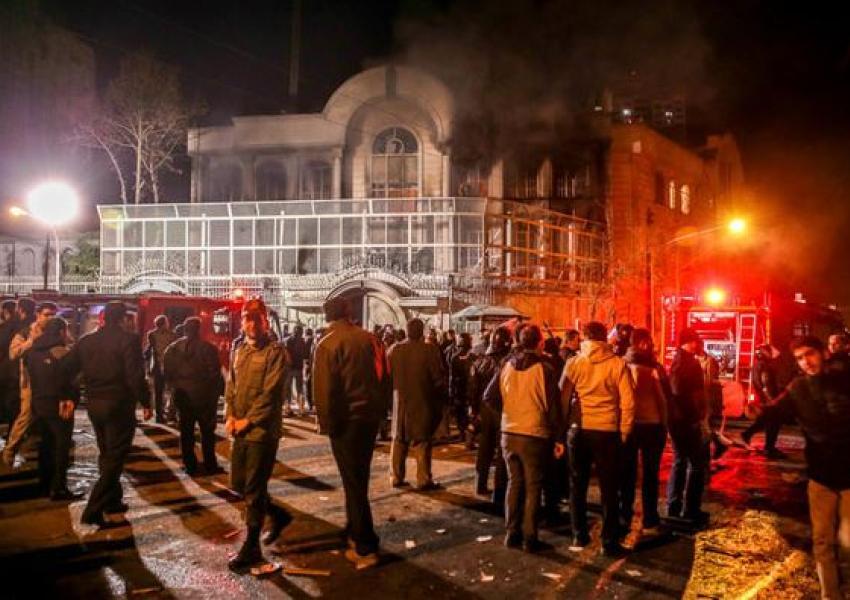
Saudi Denies Direct Talks With Iran, Iranian Media Report Without Comment
A senior Saudi official has denied any direct talks between Iran and Saudi Arabia, Arab News reported hours after the Financial Times reported that officials of the two countries had met in Baghdad on April 9. Iranian officials have made no comment yet. Pro-Iranian Al-Mayadin TV channel also quoted an unnamed Iranian official denying the report.
All major Iranian news agencies and news websites, controlled by the state, published Sunday excerpts of a Financial Times report on direct talks between Iranian and Saudi officials in Baghdad earlier this month to repair ties four years after severing diplomatic relations. It was notable that not only the report was not denied but none of the media outlets added their usual ideological commentary, showing the government wanted the news of the talks to be published without any anti-Saudi tint.
According to one official quoted in the Financial Times report, the first round of talks facilitated by the government of Iraq between the officials of the two countries took place in Baghdad on April 9 and further talks have been slated to take place. The official said talks included discussions described as "positive" about attacks by the Yemenite Houthi group strongly aligned with Iran. Neither Iranian nor Saudi officials have commented on the reported talks but an Iraqi source who confirmed the talks told the Financial Times that Baghdad had facilitated outreach channels between Tehran and Cairo and Tehran and Amman.
Riyadh cut its ties with Iran following an attack and ransacking of its embassy in Tehran after Riyadh executed 47 dissidents including a prominent Shi'ite cleric Sheikh Nimr al-Nimr in early 2016.
"We want to make sure at a minimum that any financial resources made available to Iran via the nuclear deal are not used ... to destabilize the region," a Saudi foreign ministry official who claimed Saudi Arabia was not "interested in hindering or blocking the current [nuclear negotiations in Vienna] was quoted as saying by Reuters on Wednesday [April 4]. "We can begin by a nuclear deal and move on to another format that will discuss all these issues in a positive manner," Ambassador Rayd Krimly, head of policy planning at the Saudi foreign ministry. Riyadh says it has serious concerns about Iran's ballistic missile program, its regional ambitions and the support that it offers to Houthis fighting against the Saudi-led coalition since March 2015.
The reported talks come amid nuclear talks between Iran and the remaining participants in the 2015 nuclear agreement, the Joint Comprehensive Plan of Action (JCPOA) with indirect US participation, described by diplomats to be positive. Abbas Araghchi, the Iranian envoy to the Vienna talks, said on Saturday that with the progress made, the time had arrived “for drafting the text of an agreement, or at least the parts over which there is agreement.” Araghchi also spoke of "a new understanding" taking shape and all parties sharing a final goal.
Saudi Arabia and some other Arab states in the Persian Gulf region supported the former US administration's maximum pressure campaign against Iran and have demanded to be involved in any talks between world powers and Iran on the Iranian nuclear issue.
Vienna talks focused on the US rejoining the JCPOA have been in their second week, with formal meetings of the remaining signatories of the 2015 deal – China, France, Germany, Iran, Russia, and the United Kingdom – and indirect participation of a United States delegation in a nearby hotel. Two expert groups are assessing what measures the US would need to lift, and what steps it is nuclear program Iran should reverse, in order to revive the agreement, the JCPOA (Joint Comprehensive Plan of Action), which President Donald Trump abandoned in 2018 before imposing stringent sanctions.









